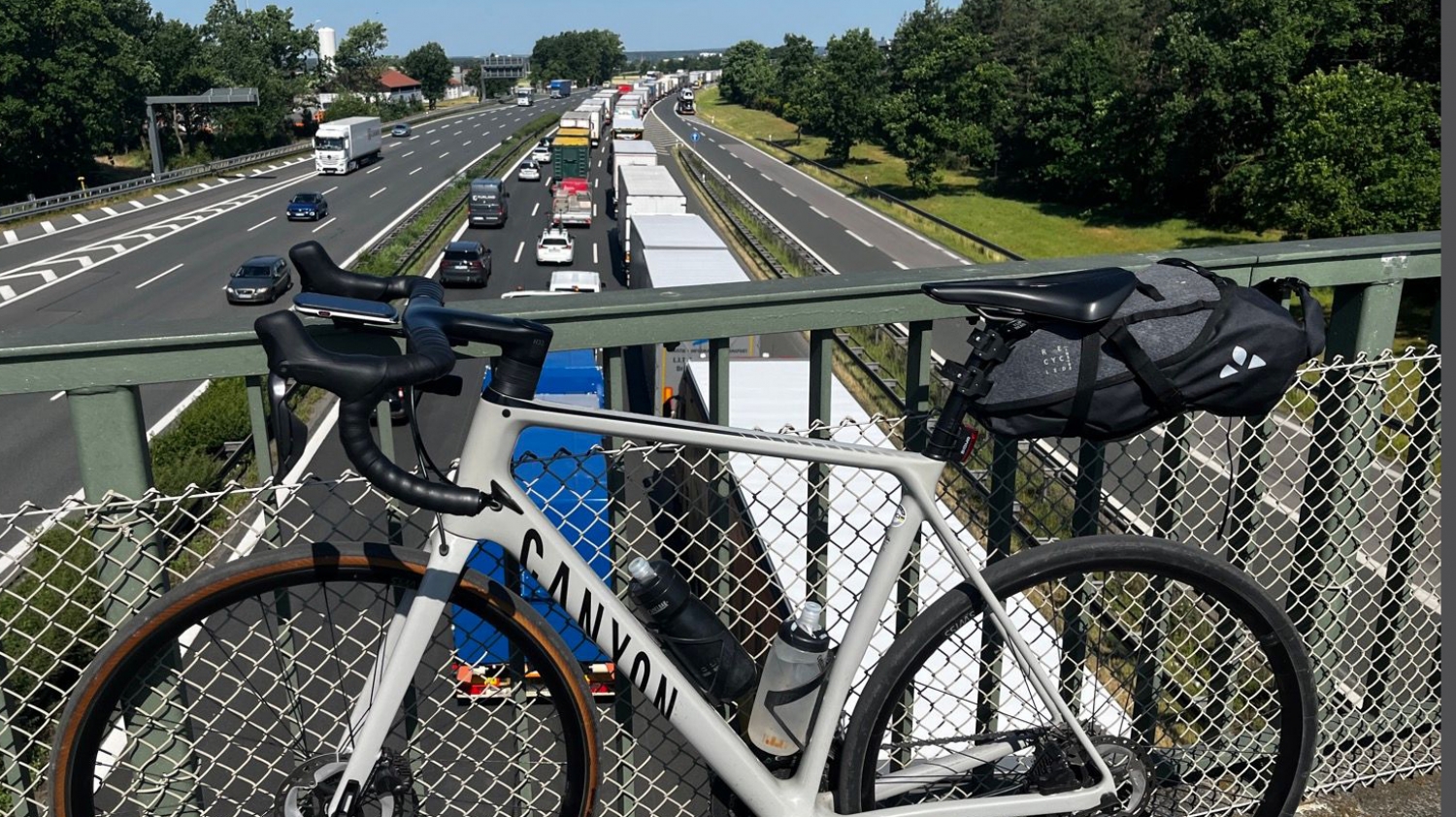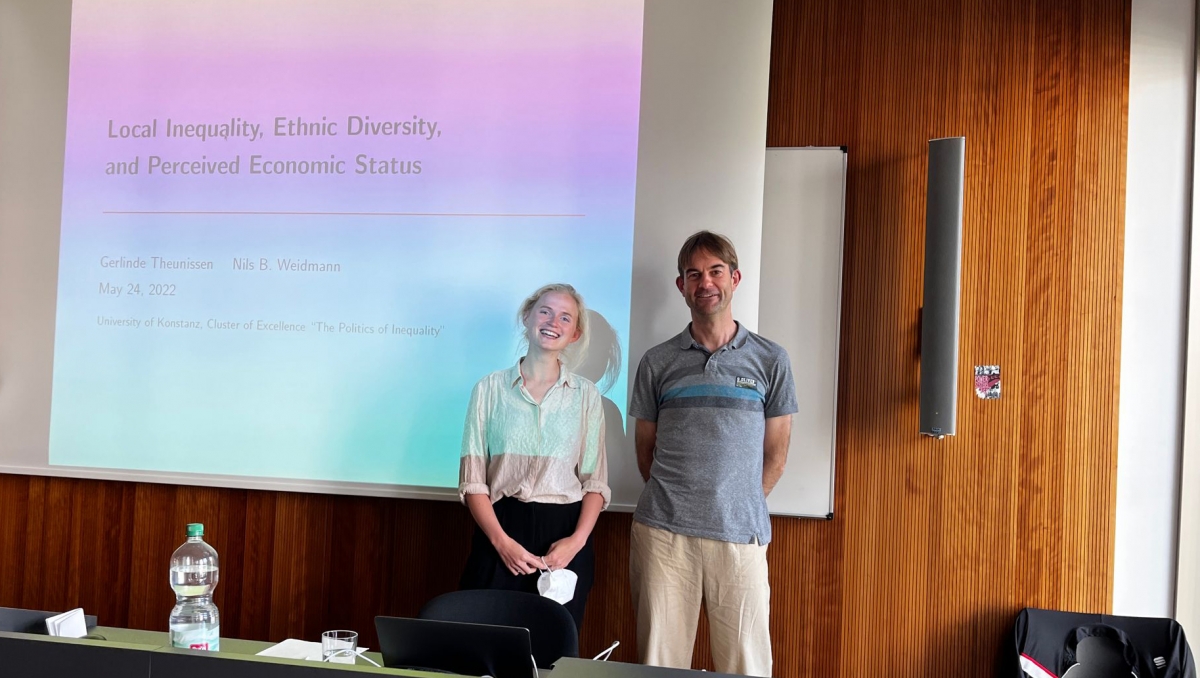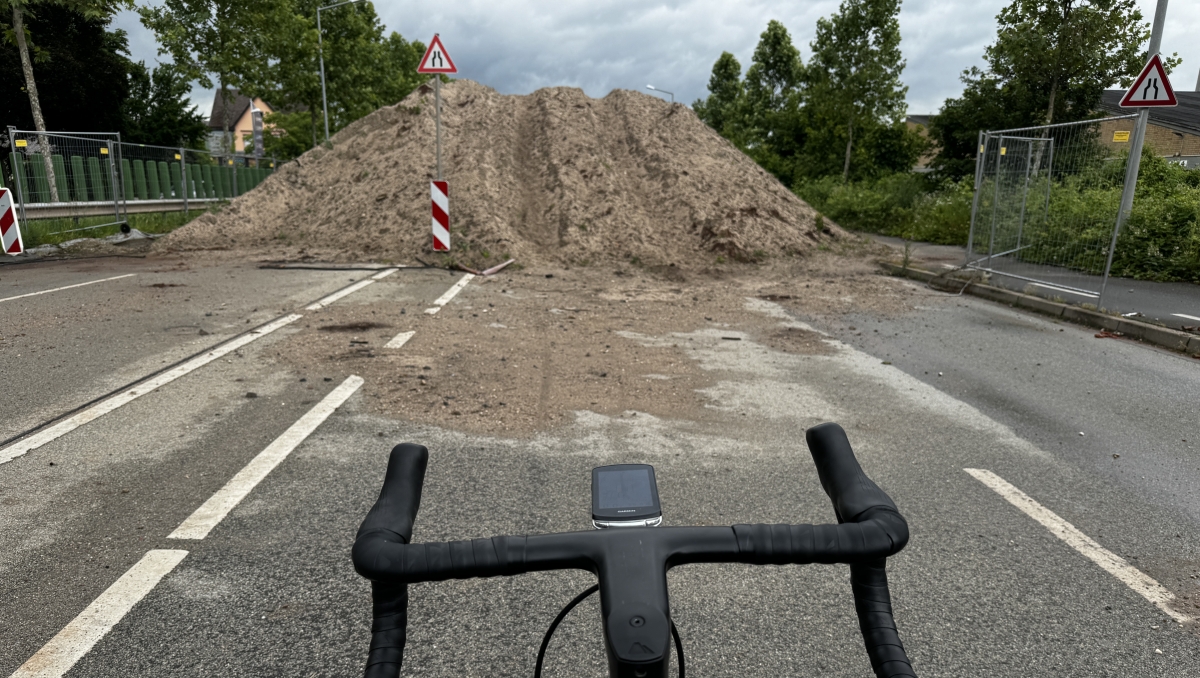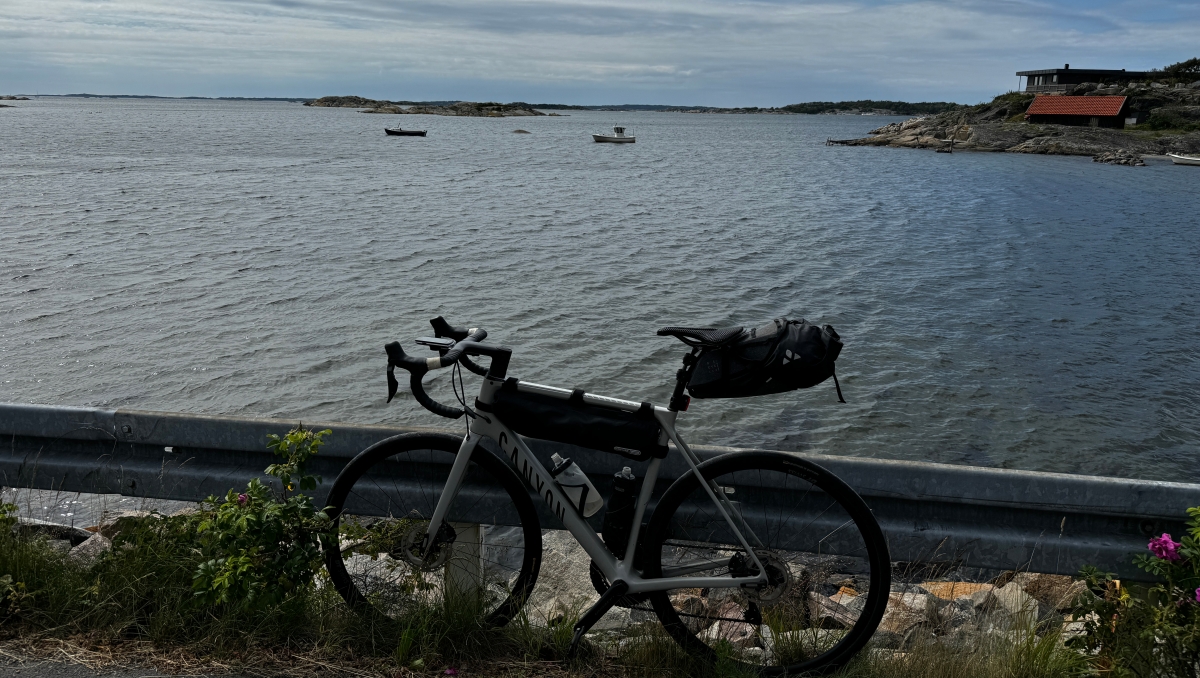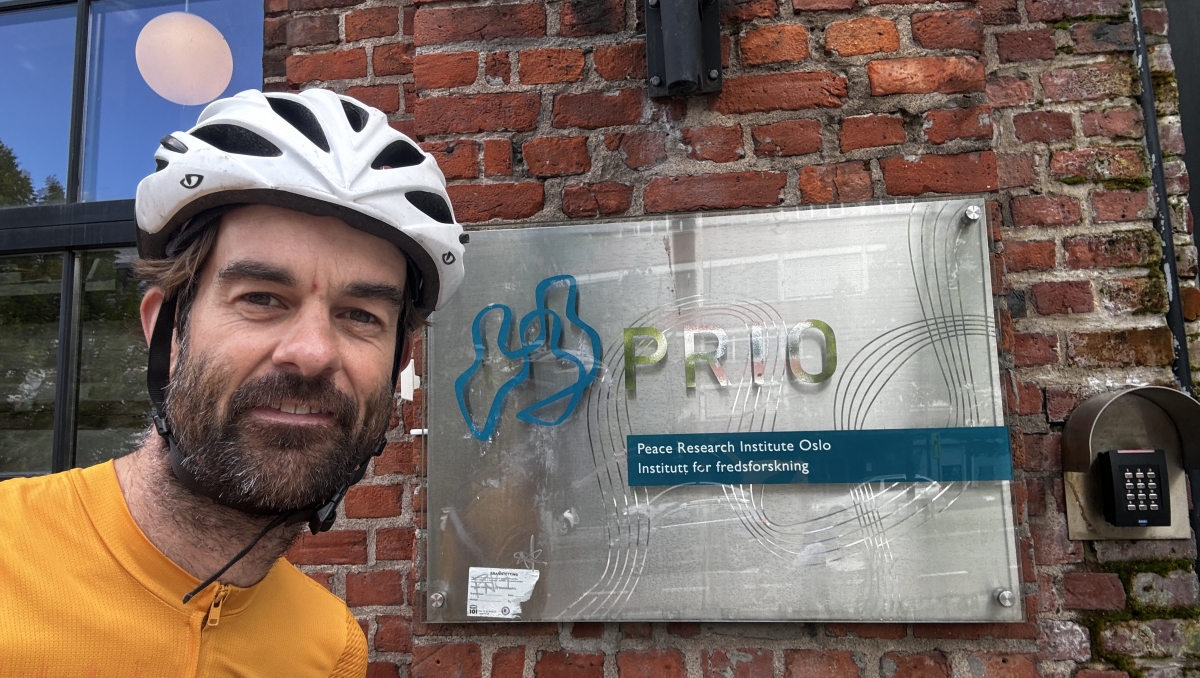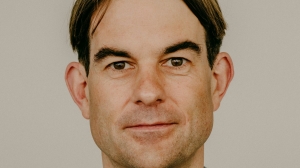A bike courier for research: Cycling from Konstanz to Oslo
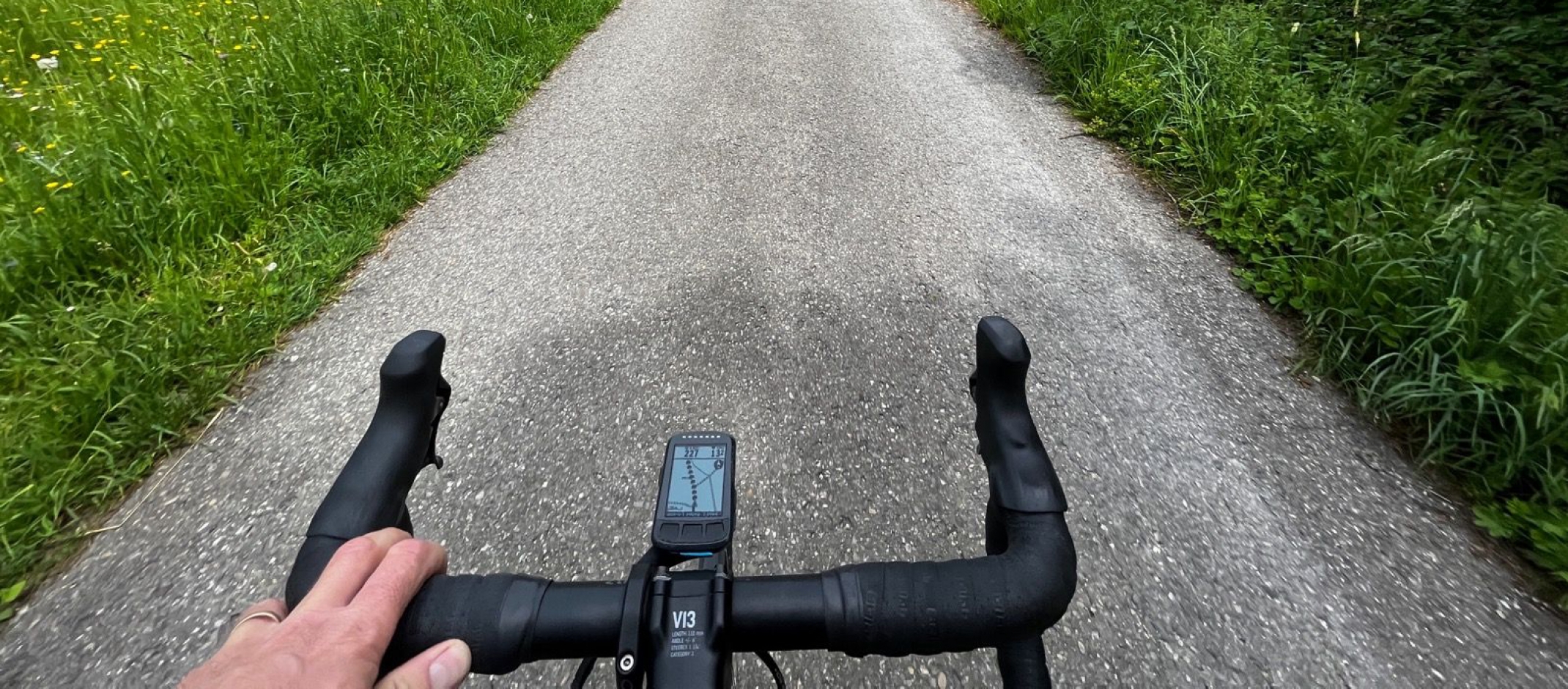
This unconventional way to conduct science communication is the focus of an interview with Nils Weidmann about his plans, motivation and expectations for his special "BikeAndTalk" project.
Your first BikeAndTalk tour took place in 2022. What inspired you to get this project rolling?
Nils Weidmann: As an active road cyclist, I thought about how to make my business travel more enjoyable and combine these trips with challenging physical activity. So it made sense to simply go by bike. From Konstanz, one usually has to travel a long distance to get somewhere, which is why trips often take more than one day to complete. This led me to combine several talks into one trip, and I developed the idea for the BikeAndTalk format.
© Nils WeidmannTraffic jams on the motorway – no problem for a bicycle (BikeAndTalk 2023).
Could you tell us a bit about this year's route? What's special about it?
The idea for travelling to Oslo this year took shape during a conversation with a former colleague at the Peace Research Institute Oslo (PRIO). This year's tour goes through Mannheim and Mainz, crossing the states of Hesse and Lower Saxony, before hitting Hamburg and Kiel on the way to Denmark. After stopping in Copenhagen, I will cross the Öresund Bridge (where, unfortunately, I will have to take the train) before continuing along the coast through Gothenburg to Oslo. The length of this year's tour is, of course, its most striking feature – the 2022 and 2023 tours each lasted just one week and took me a total of 600-800km, but they had a tighter schedule. This year's stretch is about three times as long. I can do such a long trip because the tour takes place during my research sabbatical when I am not involved in teaching.
What challenges do you expect to encounter on your four-week tour?
For cyclists, weather is a key factor that decides how much progress you can make and how much fun you have along the way. I scheduled my trip so that I hopefully don't have to spend days on end cycling through cold, wet weather. But there's no guarantee. Another challenge is if something on my bicycle breaks. I can easily fix a flat tyre by myself, but if my bicycle's shifter or chainset breaks, it could end my tour in the worst case. Finally, I also need to cut back on clothing and technical equipment, since I only have my bicycle to transport everything – I won't have a laptop with me, for example, and I will use my smartphone to share my presentation slides.
Do you have particular goals or milestones for your trip? And how did you plan it?
My main goal, of course, is to complete the tour as scheduled, arrive safely in Oslo without having to cancel any talks. In preparation for the trip, one key step was asking my colleagues if they would host me as a speaker. This was often not easy to organize, since there’s only a narrow time slot for each talk, which is sometimes even outside the regular lecture periods. After the list of institutions was finalized, I planned my route and tried to schedule the longer stretches between institutions on the weekends when there are no talks and I have more time for travelling by bicycle. That worked out quite well, but there are still a few slower days here and there.
https://youtu.be/_E8OKV6gNpE
Will you be reporting while you're on the road? How and where can we follow your journey?
Each of my stopping points is already posted on Google Maps, and I will be sharing my experiences on the tour via X and Bluesky. There will also be weekly updates on the University of Konstanz’s Instagram channel.
What role does sustainability play for you during this tour?
As you would expect, bicycles are a very sustainable mode of transportation. On the other hand, my trip takes much longer to complete by bike, so I am not sure about the overall climate footprint. Yet, it is certainly useful to show that this type of "business trip" is possible, even if it is very difficult to use a bicycle to travel longer distances. So, I don't expect there to be a cycling revolution in academic travel any time soon.
Are there any specific topics you will be discussing on your tour?
The focus will be on current topics studied by my research team. This includes, for example, the role of science and research in autocracies, AI-based analysis of images from social media, or the coding of political science data with large language models like ChatGPT.
What are your personal expectations for this trip?
I look forward to taking in lots of scenery while cycling. Since my schedule has a little flexibility, I can optimize my route and don't always have to take the shortest path between locations. It will also be exciting to meet up with lots of my fellow political scientists, especially those who work a little outside of my particular academic "bubble", and whom I probably couldn't otherwise meet.
When you look back at past BikeAndTalk tours: Which unexpected situations or challenges did you encounter that were particularly memorable?
From the 2022 tour, I remember the ride from Tübingen to Heidelberg in the pouring rain, with parts of the trip along a busy highway. That was pretty unpleasant, but I made it through. One happy memory is from the 2023 tour, when my colleague, Ulrich Sieberer, kindly surprised me with a welcome opportunity to shower at the university sports facilities after arriving in Bamberg.
During the BikeAndTalk tours, what do you personally benefit most from?
The opportunity to connect academic exchange with challenging physical activity.
Professor Nils B. Weidmann is a professor of comparative politics and head of the research team "Communication, Networks and Contention". He is a member of the Cluster of Excellence "The Politics of Inequality". Key topics of his research team include the role of information and communication technology in political mobilization, inequality and political violence, and new data collection methods in the social sciences. Nils B. Weidmann is director of the Centre for Image Analysis in the Social Sciences (CIASS) at the University of Konstanz.
Header image: On the way from Constance to Tübingen (BikeAndTalk 2022). Copyright: Nils Weidmann

